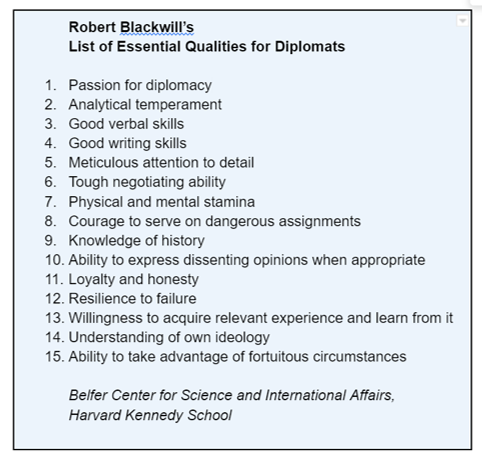In short, the better we understand how human beings handle cues from others, especially in face-to-face interactions, the more likely it is that we can program algorithms to do the same. If, for example, Vladimir Putin could understand how to gain insights into the best ways to negotiate with political leaders across the political spectrum, a contemporary Russian version of ChatGPT could be trained to gain the same insights.
At the same time, if each encounter could produce an update, so could a computational diplomat—what we call learning from experience. As an example, George W, Bush might certainly update his initial evaluation of Putin since the time when Bush commented,
"I looked the man in the eye. I found him to be very straightforward and trustworthy. We had a very good dialogue. I was able to get a sense of his soul.”
Intrapersonal intelligence
The issue of intrapersonal intelligence proves far more vexed. In modern Western society, we generally value an individual’s insights into his/her personality. And it is just possible that different computer algorithms can also come to impersonate different reflective capacities.
Psychotherapists are trained (and their profession was initiated) to help individual patients understand themselves better, thereby enhancing their intrapersonal intelligence. Indeed, such self-understanding has been a major goal of most forms of psychotherapy—to increase self- knowledge. I can give a personal example. When, at a time of difficulty, Howard saw a psychoanalyst periodically over a few months, he suggested that consider having a full-scale psychoanalysis. Howard asked, “Will I be any happier?” The therapist replied, “Not necessarily, but you’ll understand yourself better.” A terse definition of intrapersonal intelligence.














